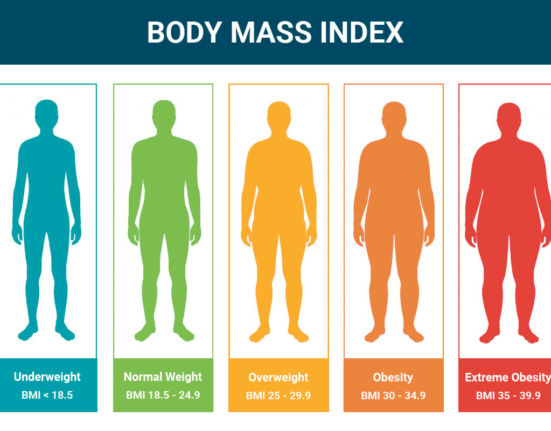A mental health disorder called mental illness is a condition that causes abnormalities in thought, feeling, mood, suffering, and behavior that limit functioning. It covers a wide spectrum of illnesses, such as post-traumatic stress disorder, bipolar disorder, personality disorders, anxiety disorders, and eating disorders.
Mental illness symptoms Include
- Weird Ideas and Beliefs
Individuals who are mentally ill sometimes have strange beliefs and thoughts that don’t make sense to other people. They include hallucinations, delusions, and paranoia.
- Mood Shifts
Individuals who suffer from mental illness may experience abrupt and drastic shifts in mood. This can involve persistently depressing, indignant, or irritable emotions.
- Difficulty in focusing
Those with mental illnesses may find it challenging to focus or concentrate on tasks. This may make it challenging to finish tasks for work or school.
- Absence from social activities
Mentally ill individuals may stop participating in activities they once found enjoyable in social settings. They could feel lonely and choose to stay in rather than go out with friends.
- Changes in Appetite
People with mental illness can lose their appetite. This can involve eating excessively or insufficiently, which can result in a weight increase or decrease.
- Sleeping issues
Those who suffer from mental illness may have trouble falling asleep. They might have difficulty falling or staying asleep, which could make them tired during the day.
- Self-Harm
Self-harming activities, such as cutting or burning oneself, are common among those who suffer from mental illness. This indicates considerable distress and has to be handled right now.
- Addiction to drugs
Alcohol or drugs may be used by people with mental illness to try to deal with their symptoms. This could exacerbate their condition and result in addiction.
- Suicide Thoughts
Suicidal thoughts or a sense of helplessness are common among people with mental illness. This is a symptom of major distress and has to be handled right now.
- Changes in Energy Level
Energy levels may fluctuate in people with mental illness. They can be extremely energized and restless or they might feel worn out and uninterested.
Mental disease causes include
- Genetics
Genetic, biochemical, psychological, and environmental variables can all contribute to the development of mental disease. According to research, hereditary factors may have a role in the development of some mental diseases, including schizophrenia and bipolar disorder.
- Brain Chemistry
Chemical imbalances in the brain, such as those in neurotransmitters, can also be a factor in mental illness. Chemicals called neurotransmitters to assist in transferring impulses from one nerve cell to another. Changes in mood, energy level, and behavior may result from these substances being out of balance.
- Stressful Life Events
Traumatic experiences, major life changes, or the death of a loved one are all examples of stressful life events that can lead to mental illness.
- Drug Abuse
Using drugs and alcohol are examples of substance abuse, which can exacerbate mental illness. Abuse of drugs or alcohol can affect one’s attitude and conduct and make it difficult to think properly and make wise judgments.
- Social Factors
Societal issues like deprivation, exclusion, prejudice, and difficulty accessing care can further exacerbate mental illness. Individuals who face social stigma or lack of social support may be more prone to mental health problems.
How mental illness can be treated?
Fortunately, numerous treatments might assist those who are struggling with mental illness.
- Psychotherapy
Psychotherapy is one of the most crucial therapies for mental disease. This often entails speaking with a therapist who can assist the patient in sorting out their problems and identifying effective symptom management techniques. A common method of psychotherapy that focuses on altering unfavorable thought and behavior patterns is cognitive behavioral therapy (CBT). It has been discovered to be especially successful in treating depression and anxiety. Dialectical Behavioral Therapy (DBT), Psychodynamic Therapy, and Interpersonal Therapy are further types of psychotherapy.
- Medication
Another crucial form of treatment for mental disorders is medication. Anti-psychotics and antidepressants can be prescribed to treat schizophrenia, bipolar disorder, bipolar disorder symptoms, and depression. While it can be challenging to find the perfect dosage and medication combination, it is crucial to work actively with a doctor when taking medicine.
- Lifestyle changes
People with mental illnesses can benefit from several lifestyle changes in addition to counseling and medication. They consist of getting adequate sleep, eating well, and exercising. Exercise has been shown to improve mental health since it helps lessen stress and anxiety. A healthy diet and adequate sleep can also help to elevate mood and lessen the signs of mental illness.
- Support programs and support groups
Finally, peer support programs and support groups may be helpful to those with mental illness. This can be a fantastic method to get in touch with people who are familiar with living with a mental illness. They can provide one another support and a secure environment in which to share experiences.
In general, there are numerous efficient therapies for mental diseases. To determine the appropriate course of action for each person, it is crucial to consult a mental health specialist. Those who are mentally ill can live healthy, fulfilling lives with the correct treatment regimen.
Conclusion
An individual’s life can be significantly impacted by mental illness, which is a serious condition. Knowing the warning signs and symptoms of mental illness will enable you to seek assistance if necessary. It’s crucial to get treatment immediately away if you or someone you know is exhibiting any of the aforementioned symptoms. It is possible to control the signs of mental disease and have a healthy, productive life with the correct care.








Leave feedback about this